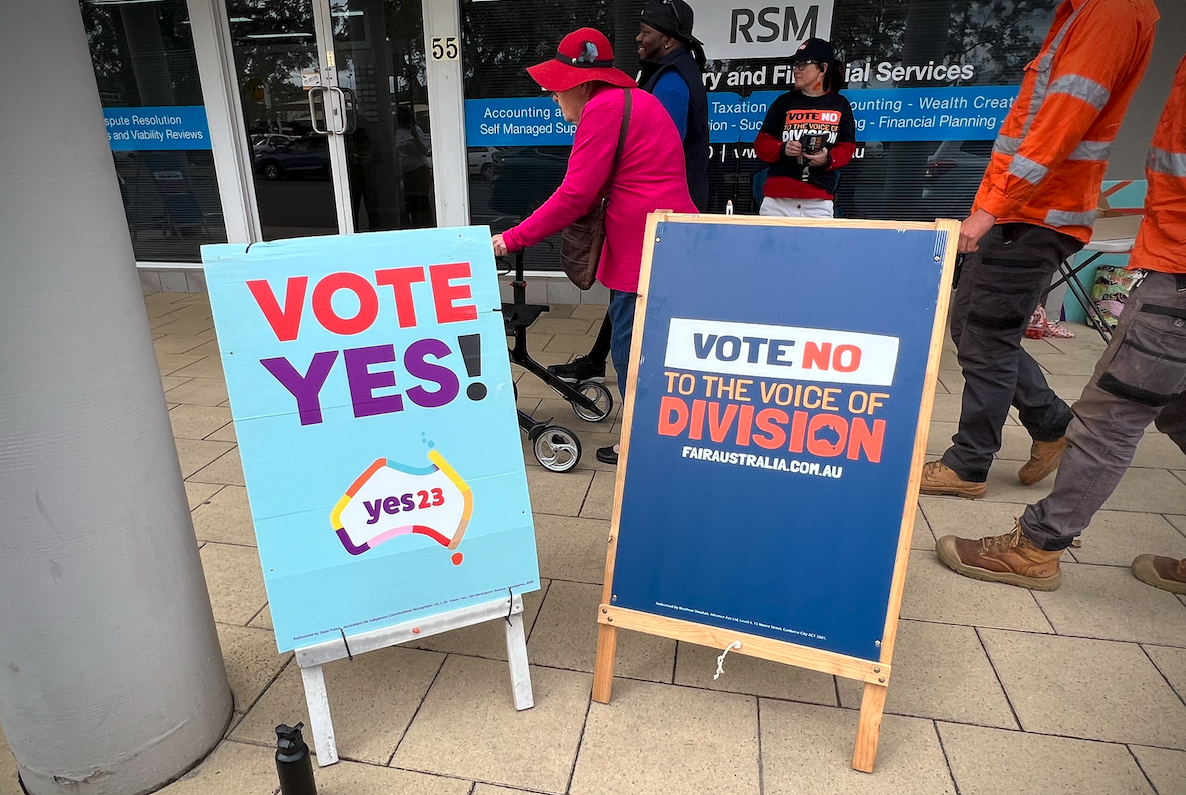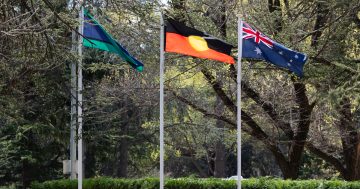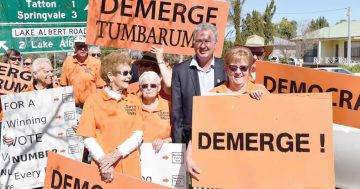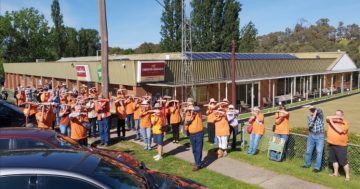
Yes or No Australians will cast the final votes on Saturday. Photo: Chris Roe.
Saturday 14 October is the last chance for Australians to cast their vote on the Indigenous Voice to Parliament, and local advocates for Yes and No have been out making their final pitch.
Riverina for Yes team leaders Peita Vincent and Nick Spragg said they remain hopeful despite the polls leaning towards a No result.
“People are still undecided, so every volunteer we have is out there and working really hard to have those conversations,” Ms Vincent said.
“I think that a vote for No maintains the status quo and, quite frankly, the status quo is not working for us.
“You look at any metric around education, around incarceration, life expectancy – Aboriginal and Torres Strait Islander people do worse than the average Australian.”

Riverina for Yes campaigners are hoping the polls are wrong. Photo: Jarryd Rowley.
Paul Funnell has been campaigning against the Voice and said it’s difficult to gauge public opinion as he believes some No voters are afraid to publicly state their position.
“If you listen to the polls, they’re saying No is winning, then again, look at the polls from the last federal and state elections. They got it wrong,” he said.
“I am concerned about some of the skullduggerous nature of how things have gone about… but around the Riverina, it appears to me there is a silent majority.”
While Mr Funnell agreed that the status quo needs to change, he argued that there are already “voices” in place and that the referendum process has lacked detail and a focus on outcomes.
“There should have been a lead up to this, a proper open discussion… a process that says, this is where we want to head, this is what it’s about, which is about trying to close the gap,” he said.
“This government, this Prime Minister, has set out to divide the nation, and it has clearly divided it because they’ve said there’s going to be a rule for one based on colour.
“You can’t have people in one nation living by two sets of rules when there’s already an overwhelming opportunity for people to be represented.”
Mr Funnell also questioned the broader agenda of the Yes campaign, citing the three-pronged ‘Voice, Treaty, Truth’ objective of the Uluru Statement from the Heart and the possibility of reparations.
“Why should I make atonement for something that I didn’t do, my parents didn’t do and not my children? They’re not hiding from this. They are saying pay the rent.”

No campaigners say the Voice referendum has sown division. Photo: Jarryd Rowley.
Nick Spragg pushed back, accusing the No campaigners of spreading “lies”.
“It needs to be called out,” he said.
“His view is not representative of a country that the people want.”
Mr Spragg said that enough detail on the Voice had been made available, but that the finer details would be hashed out in Parliament.
“The reality is, if Yes gets up, there will be a body created that will talk to Parliament,” he said.
“Parliament will create that body and what its powers are, what its processes are, what its procedures are within that.
“This will set up a proper process for the first time, and one that can’t be torn down… It’s going into the constitution so it can’t just be ditched.”
Voting in the referendum is compulsory for all Australians who are enrolled and they will be faced with a single question on the ballot paper.
“A proposed law: to alter the constitution to recognise the First Peoples of Australia by establishing an Aboriginal and Torres Strait Islander Voice. Do you approve this proposed alteration?”
It is then a matter of writing ‘Yes’ or ‘No’ in the space provided.
For more information on the referendum and where to vote on Saturday, visit the Australian Electoral Commission website.










